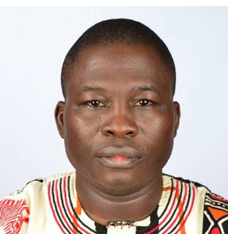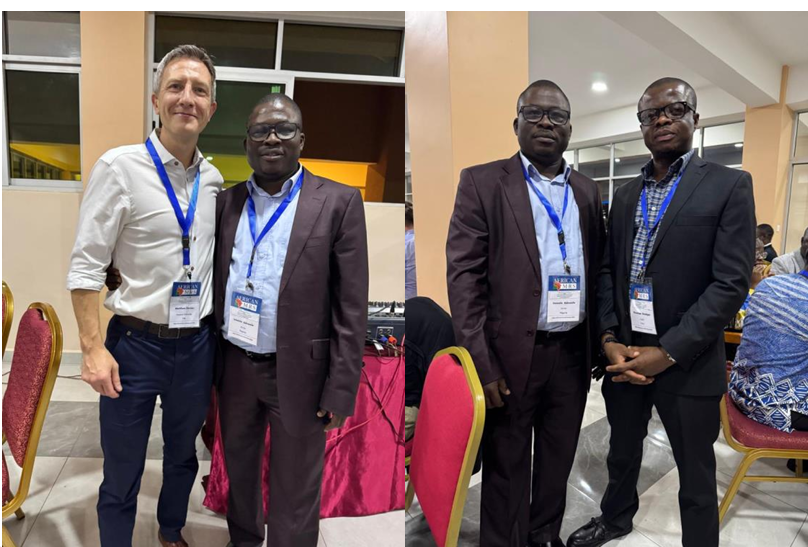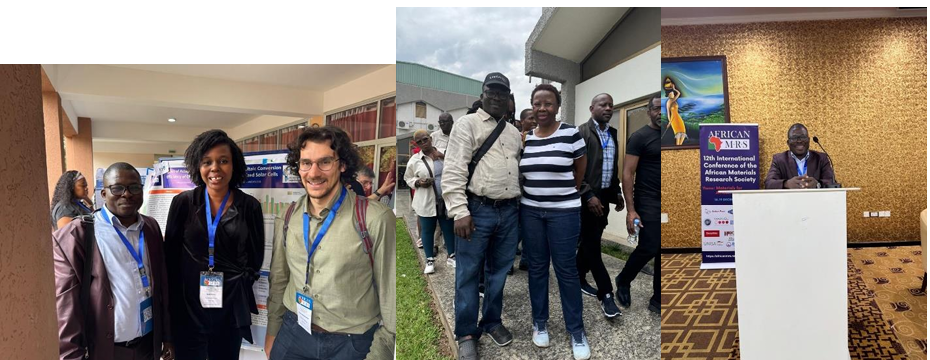
Short Bio
Adewale Tolulope IREWALE is an interdisciplinary researcher, strategist, operations analyst, and youth mentor with expertise
spanning natural and social sciences. Currently pursuing a doctoral degree in Nanotechnology at the African Center of
Excellence in Future Energies and Electrochemical Systems (ACE-FUELS), Federal University of Technology Owerri (FUTO),
Nigeria, I focus on leveraging invasive species, specifically water hyacinth, to develop biochar-based, nanonutrient-enabled
fertilizers. This innovative approach aims to facilitate precision agriculture by integrating bio-nanofertilizer technologies that
enhance crop productivity while promoting environmental sustainability.
My research extends to computational modeling using Material Studio Software to unravel the molecular interactions between
nanonutrients and biochar, examining their sorption dynamics. This work aims to optimize fertilizer formulations for improved
plant nourishment, contributing to global food security and ecological balance. Recognized for its impact, this research
earned the 3rd Prize in the Environmental Engineering Awards for Green Sustainability by World Technology Partners, USA, and
has resulted in two peer-reviewed publications, with a third currently under review:
DOI: 10.1016/j.sciaf.2024.e02276
DOI: 10.1016/j.heliyon.2024.e36966.
Professionally, I bring over two decades of multidisciplinary experience, including research at the International Institute of
Tropical Agriculture (IITA), academic instruction in advanced chemistry and biochemistry, and also working in the upstream oil
and gas industry.
Conference Experience: AMRS 2024, Kigali, Rwanda.
The 12th International Conference of the African Materials Research Society (AMRS 2024), held from December 14–19 in
Kigali, Rwanda, was a convergence of over 340 participants from 42 nations, including representatives from 22 African
countries. Pre-conference workshops provided invaluable insights into computational modeling using Quantum Espresso, a
skill I have already begun applying to enhance the computational aspects of my nanotechnology research.
Key conference highlights included:
1. Knowledge Acquisition:
Participation in plenary and breakout sessions, which featured presentations by global experts, including Nobel laureates.
Insights into entrepreneurship in science and research, which I plan to integrate into future research commercialization
strategies.
2. Networking and Collaboration:
Establishing connections with leading academics and industry professionals, paving the way for collaborative research
opportunities. A notable meeting with Prof. Mathew Davies (Swansea University, UK) in an ongoing ACE-FUELS’ partnership
with Swansea in the development of next-generation solar energy solutions under the TEA@SUNRISE Network.
3. Research Showcase
Representing ACE-FUELS with an oral presentation on my research while my colleague, Ruth Iloba, contributed through a
poster session. These engagements highlighted our institution’s cutting-edge work in renewable energy and nanotechnology
to a global audience.
4. Cultural Engagement
The conference concluded with a visit to the Rwanda Genocide Museum and scenic exploration of Kigali, aptly named the
“Land of a Thousand Hills.”
5. Reflections and Gratitude
AMRS 2024 was transformative, offering a platform for intellectual exchange, research dissemination, and strategic
networking. It reinforced my commitment to advancing material science and engineering solutions for Africa’s sustainable
development. My gratitude extends to the conference organizers and sponsors for the travel grant, which covered airfare and
accommodation, enabling my participation in this career-defining event.
Looking ahead, I am excited about continuing this journey at IUMRS Ghana 2025.
Memorable Interactions
Key moments captured include photos with:

Prof. Mathew Davies, Swansea University, UK.
Dr. Chris Dimkpa, The Connecticut Agricultural Experiment Station, USA.

Ruth Iloba (ACE-FUELS) and Lorenzo Bastonero (University of Bremen, Germany).
Prof. Mmantsae Diale, University of Pretoria, South Africa